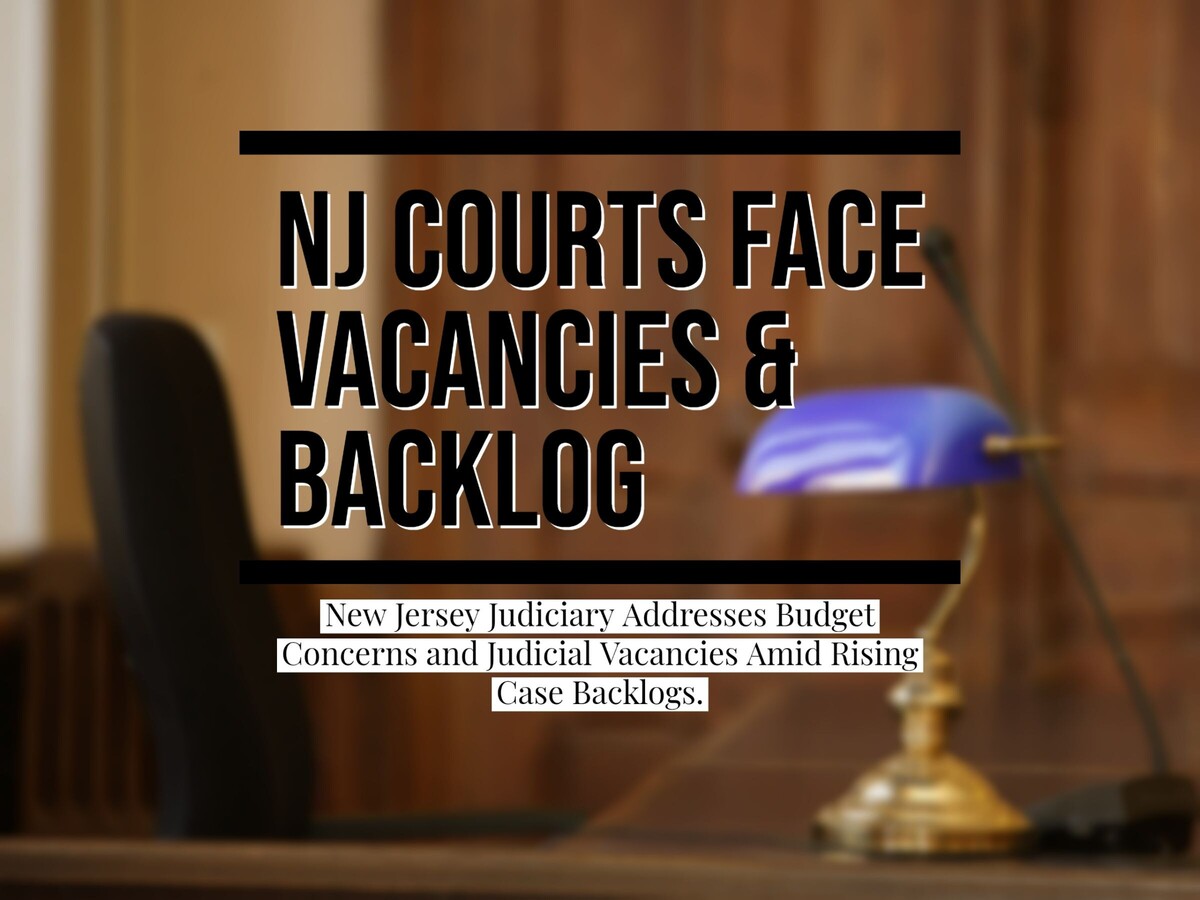Image


New Jersey Judiciary Addresses Budget Concerns and Judicial Vacancies Amid Rising Case Backlogs.
Court System Seeks Funding to Address Vacancies, Language Access, and Criminal Justice Reform
During a recent meeting with the Assembly Budget Committee, New Jersey's judiciary officials, led by Chief Justice Stuart Rabner and including several Assignment Judges, emphasized the urgent need to address the ongoing crisis of judicial vacancies and the resulting case backlogs.
Over the past three years, the court system has experienced an average of more than 50 vacancies, a number officials had previously warned should be reduced to between 25 and 30. The current crisis has forced the prioritization of certain emergency and constitutional liberty matters over other cases. This past February, Chief Justice Rabner made the unprecedented decision to shut down civil and matrimonial trials in two court vicinages due to the overwhelming backlog.
The judiciary now faces 58 judicial vacancies and a massive backlog of cases caused by high vacancy numbers and the COVID-19 pandemic. As new judges are nominated and confirmed, 22 more judges are expected to retire by the end of the calendar year, making it difficult to reduce the backlog.
The ongoing pandemic and judge vacancies have had significant implications for the criminal division. Criminal trials were severely affected by the public health emergency, leading to an increase in both detained defendant trials and defendants on pretrial release. The number of individuals on pretrial release has risen by over 50% in the past three years, from 30,000 to 46,000, due to trial delays. The judiciary is requesting an increase in funding for pretrial staff from $24 million to $30 million to properly monitor defendants on pretrial release.
In addition, the judiciary is seeking funding to expand its capacity to provide court notices in multiple languages, given New Jersey's diverse population. The anticipated additional costs are estimated to be $6-7 million per year.
The testimony also highlighted several judiciary programs aimed at addressing challenges facing the court system and society, including the mental health collaborative, the JOBS (Judiciary Opportunities for Building Success) program, and the Reduction of Gun Violence Initiative. These programs are designed to improve the justice system's response to individuals with mental health issues, provide stable employment opportunities for those in need, and combat gun violence in communities.
New Jersey's judiciary officials are now urging the Assembly Budget Committee to allocate necessary funding and resources to address these pressing concerns, ensuring the public receives the level of service they are entitled to from the court system.